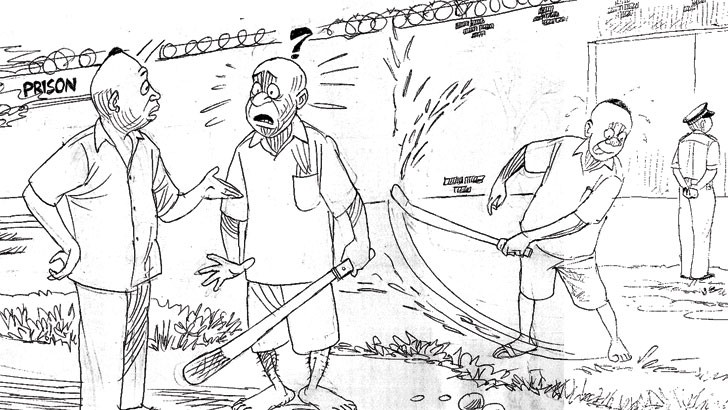Rev. Maulana, DPP, embrace change
Every Malawian, in theory, has the overarching duty of upholding the tenets of a democracy. One way is to combat a culture of silence and lies, especially on public matters of concern.
And political and religious leaders are best placed to understand the importance of truth telling.
For instance, guided by this accepted wisdom, Roman Catholic bishops in Malawi in 1992 issued a pastoral letter which shook the existing regime then to its foundation.
The bishops realised that they had a role to help the nation understand that promoting some cultural practices such as muffling dissenting voices— a culture that characterised Hastings Kamuzu Banda’s regime—can at times work against the very purpose of life.
The pastoral letter brought about a flurry of political bustles that resulted in Malawians getting rid of Kamuzu Banda and Malawi Congress Party (MCP) in 1994 and hiring United Democratic Front’s (UDF) Bakili Muluzi to head the nation under pluralistic practices.
Yet it appears the country keeps on running in circles without making any headway in almost all aspects, including freedom of expression.
Even up until today, 18 and 22 years after the death of despotic Kamuzu Banda and one-party rule respectively, many Malawians fear to say the truth in front of authorities. And every new leadership while trying to dismantle the one that came before is bent on repeating the same mistakes.
Despite Greek philosophies—where today’s more organised religion stems from – teaching us that pursuit of truth, at all cost, is a noble course, caught with the nation is the news in last Sunday’s The Sunday Times that Blantyre CCAP Synod has banned its prison chaplain, Rev. Stanley Chimesya, from speaking on issues to do with prisons.
The ban, it is reported, came barely nine days after Chimesya faulted President Peter Mutharika for painting a prison cell he was incarcerated in during the Joyce Banda administration.
Chimesya corroborated the information, saying he received a directive from the synod general secretary (GS) that he is no longer allowed to speak to the media on prison matters. He added that he had information the synod’s GS Rev. Alex Benson Maulana received a phone call on the same from the State House.
For a record, Chimesya was quoted as saying Mutharika should have concentrated on improving conditions in all the prisons in the country, instead of limiting his gesture to those that hold personal memories for him.
But Maulana, who is the official spokesperson of the synod, has just rendered one barefaced throwback to the bad old days of stifling opposing views by the MCP, UDF, past Democratic Progressive Party and People’s Party regimes in his way of thinking about Chimesya’s statement.
As the synod’s voice sanctioned, among others, to sell the church’s principles, Maulana is supposed to use his position and ‘rhetorical gift’ to promote cultural/Christian/political values that enhance the purpose of life and meaningful social interaction, in the context of a democracy and other current signs of times rather than indulge in tried and failed ideologies.
Again, whether it is the President or some ‘kitchen friend’—who wants to be the power behind the throne—who telephoned Maulana from State House issuing instructions on the synod to gag those who open their mouths, they must be reminded that the President’s job in a democracy is to formulate policies, assisted by Cabinet, that if implemented successfully will allow the citizenry to acquire by and for themselves a better livelihood.
This is the reality that Rev. Maulana and DPP must accept and embrace if the nation is to pull in one direction. n



